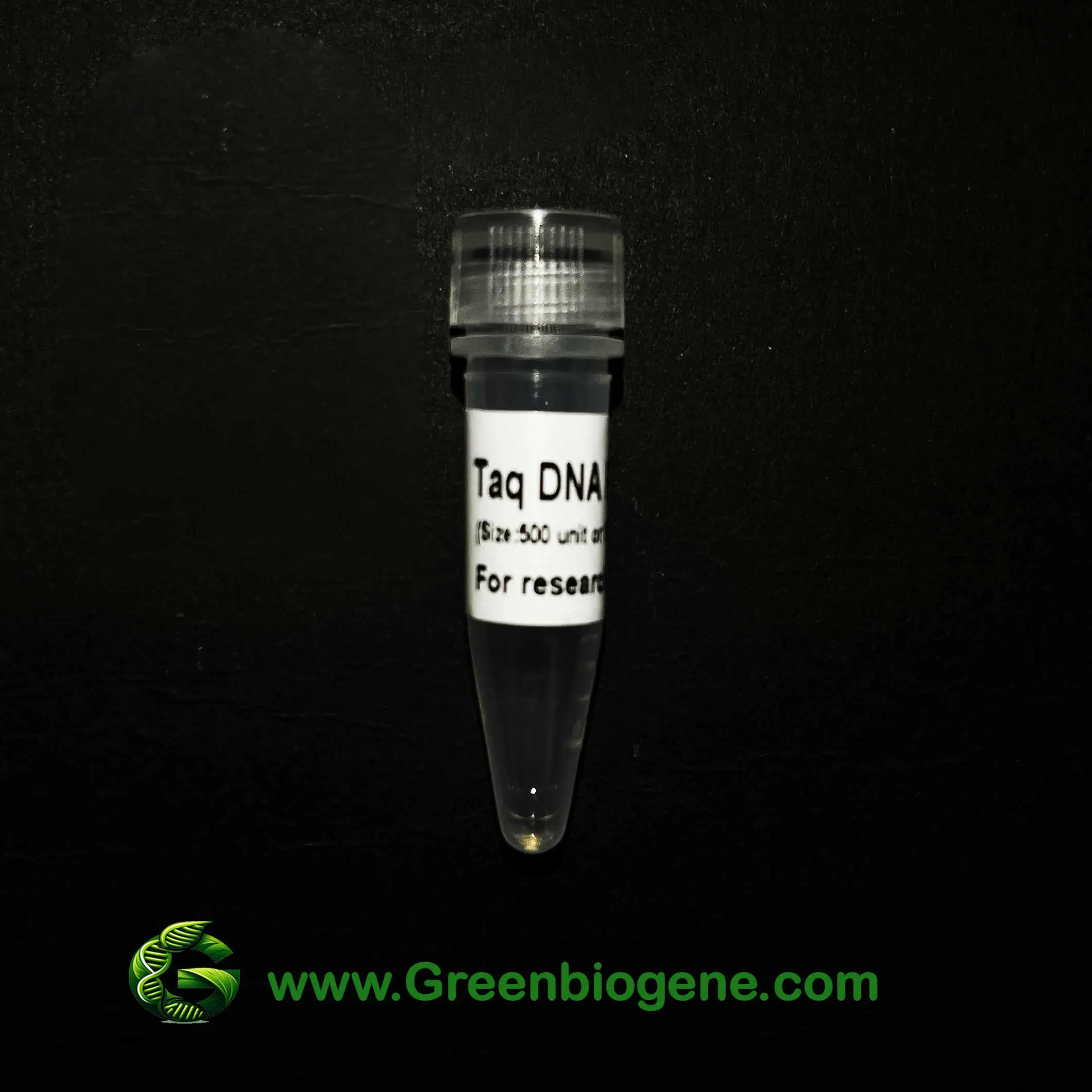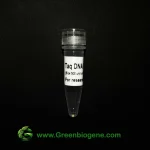Taq DNA polymerase
⇓ Protocol
Taq DNA polymerase is a thermostable enzyme originally isolated from the bacterium Thermus aquaticus. This enzyme is widely used in the polymerase chain reaction (PCR) technique, a common method in molecular biology to amplify DNA sequences. Taq DNA polymerase is particularly valuable because it can withstand the high temperatures required during PCR, remaining active even after repeated heating cycles.
Key features of GB Taq DNA polymerase:
-
Thermostability:Can withstand temperatures up to 95°C, making it ideal for PCR.
-
High activity:Efficiently extends DNA strands, allowing for rapid amplification.
-
Versatility:Suitable for various applications, including cloning, sequencing, and genotyping.
How Works This Taq
- Initiation:
It attaches to the single-stranded DNA template at the primer binding site. - Elongation:
It synthesizes a new DNA strand by adding nucleotides to the 3′ end of the primer. - Thermostability:
It remains stable and active at high temperatures (around 72°C), making it ideal for the high-temperature cycles of PCR.
Applications
- Polymerase Chain Reaction (PCR):
This is the most common application, where Taq DNA polymerase is used to amplify specific DNA sequences. It’s fundamental in research, clinical diagnostics, and forensic science. - Cloning:
Used to amplify and subsequently insert DNA fragments into vectors for cloning purposes. - Sequencing:
Facilitates the preparation of DNA samples for sequencing by amplifying the regions of interest. - Genotyping:
Helps identify genetic variations and mutations by amplifying specific DNA regions for analysis.
Advantages
- Efficiency:
Its ability to rapidly synthesize DNA makes it suitable for high-throughput applications. - Cost-effective:
Its widespread use and ease of production make it a cost-effective choice for laboratories.
Limitations
- Fidelity:
It lacks proofreading activity, which means it can introduce errors during DNA synthesis. For applications requiring high accuracy, other polymerases with proofreading abilities may be preferred.
Its has revolutionized molecular biology by enabling rapid and efficient DNA amplification.




